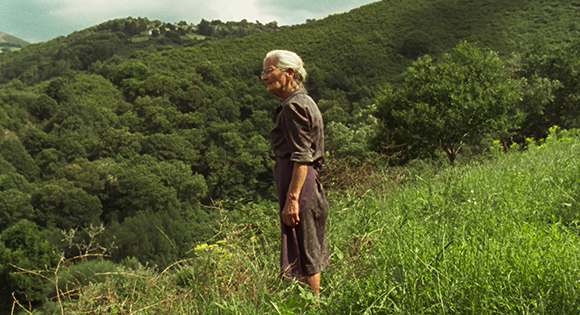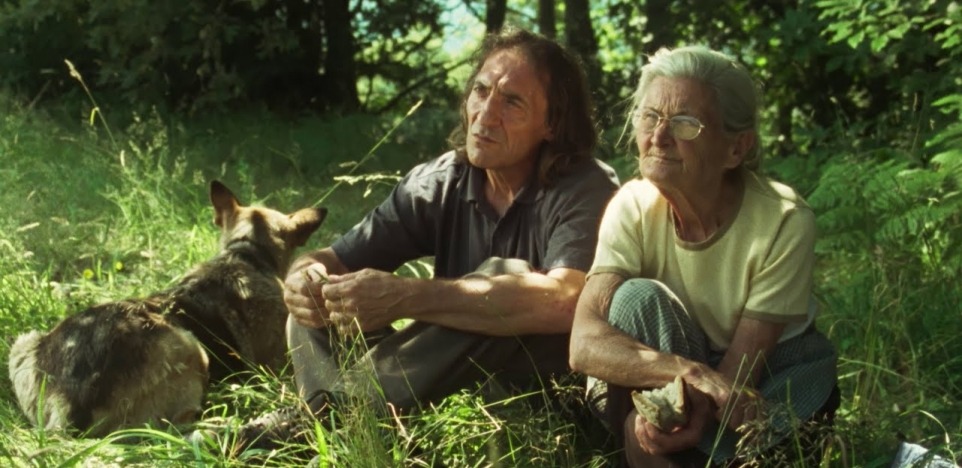There are many manifestations of the element of fire and throughout history, human beings have found various uses for this tool. Jean-Jacques Annaud's Quest for Fire, a 1982 film, takes us back 80,000 years as various tribes try to figure out ways to use this flame for survival and as a weapon against their enemies. Whereas humans have prospered by taming fire, forests have often suffered because of it. Today trees are not only under attack from natural events like lightning, they are being deliberated set on fire by those eager to make a profit by converting areas for development or livestock.
In the mesmerizing opening of this film set in a mountainous region of Galicia, Spain, we enter a misty forest at night and witness a group of incredible eucalyptus trees fall backwards in a swoon of submission. It turns out that they are being cut down by the bulldozers of a group wanting to build a new pleasure palace and resort. Many poor villagers back the project as a means of building up the economically stressed area.

Amador (Amador Arias), who was born and raised in Galicia, has returned home after serving two years in prison on charges of starting a fire in the region. In his absence, his widowed 89-year-old mother Benedicta (Benedicta Sanchez) has labored in the fields and taken care of their three cows. She and her son do not talk much but share an enormous unspoken love of this mountainous place.

Spanish director Oliver Laxe shows Amador's lack of social graces when Elena (Elena Mar Fernandez), a local vet, helps him rescue a calf stranded and stuck in creek. On the way back home, she turns on the radio and the two them listen silently to Leonard Cohen singing "Suzanne." When she invites him for coffee, he declines, and we sense that loneliness, loss, and anxiety have taken away the man he once was.
As the title predicts, another fire happens and some villagers believe it was Amador's work. But why would he try to damage the majestic forest he loves? It's a tribute to the filmmaker's sensitivity to subtle character development that filmgoers will not be quick to judge Amador.
